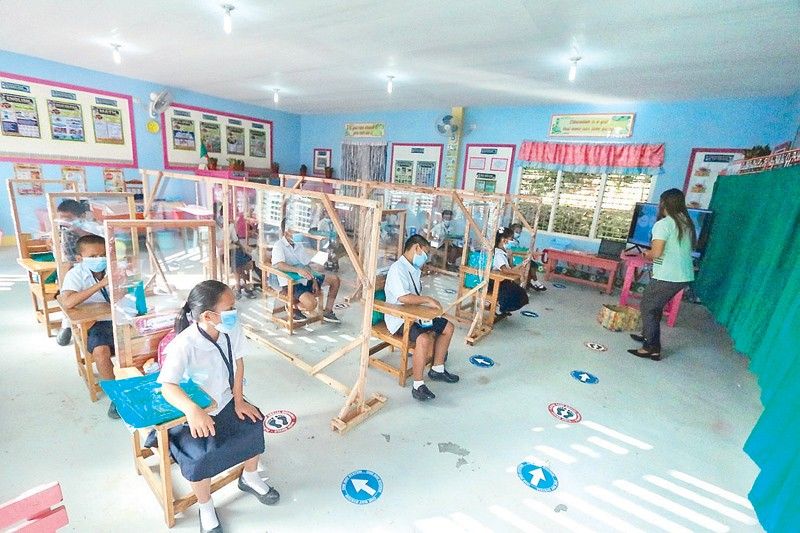House OKs suspension of using mother tongue to teach young learners

MANILA, Philippines — The House of Representatives on Monday approved on final reading a bill that seeks to suspend the use of the mother tongue as the primary medium of instruction in early-grade education.
Approved with 240 affirmative votes, three negative votes and two abstentions, House Bill 6717 aims to halt the use of the first language to teach Kinder to Grade 3 students until the Department of Education has addressed the scarcity of learning materials in the mother tongue.
The measure is based on the premise that the suspension would help DepEd and school districts develop enough materials to fully implement the use of the mother tongue – a move that education experts have warned would set back students from comprehending their lessons if delivered in an unfamiliar language.
The bill also requires DepEd and the Komisyon ng Wikang Filipino to assess which school districts can fully implement the mother tongue-based instruction and which localities have more than one native language.
The measure, however, retains the use of Filipino Sign Language as the medium of instruction for students with pertinent disabilities.
DepEd figures in 2020 show that the department has already developed learning materials for 19 languages in the Philippines, which covers nearly 80% of the learners' population.
Challenging the use of the mother tongue
Rep. France Castro (ACT Teachers party-list), among the three lawmakers who voted against the bill, said that instead of suspending the implementation of the mother tongue, it should be reviewed instead.
"We should know the root of the problem, listen to teachers and other stakeholders, and identify the inadequacies of the program, and come up with short- and medium-term solutions. This needs political will, which begins with allocating enough funds," Castro said in Filipino.
Castro also said that if the measure becomes law, the efforts of researchers, educational institutions and other stakeholders to develop learning materials – some using their own money – would be wasted.
"This is the resounding concern that they want to extend (to lawmakers), because many of them are in districts that are not ‘certified ready’ or would most likely not be certified ‘ready’ due to the absence of a program supervisor or teachers trained in a certain language," Castro added.
There is no counterpart bill posted on the Senate website.
If passed into law, the measure would temporarily suspend the practice of teaching students in the language they first learn at home – a method of instruction that has previously improved students’ learning outcomes in several schools, said Mercedes Arzadon, a professor at the University of the Philippines Diliman’s College of Education.
"That's the reason we had the (Mother-Tongue Based Multilingual Education or MTB-MLE), because it was found out that children were underperforming because they were not taught in their mother tongue," Arzadon told Philstar.com.
The Enhanced Basic Education Act of 2013 mandated that for kindergarten and the first three years of elementary education, instruction, teaching materials and assessment should be written or taught according to students’ native language.
Lack of trained teachers
Hiccups in the implementation of the MTB-MLE in K to 12 have been pinned on the lack of teachers trained in using the mother tongue as primary medium of instruction and schools’ full compliance with the program.
In a Senate hearing in 2022, DepEd bared that only 78,872 of its targeted 305,099 educators have been trained for the use of the mother tongue as a medium of instruction.
State think tank Philippine Institute of Development Studies also found in a study that less than 10% of over 16,000 schools it analyzed had fully complied with the main aspects of the MTB-MLE implementation, namely in orthography, grammar, learning resources, and dictionary.
President Ferdinand "Bongbong" Marcos Jr. said in his first State of the Nation Address that "the question of our medium of instruction must be continuously re-examined to maintain that advantage that we have established as an English-speaking people."
- Latest
- Trending
































